1、梅勒妮·梅隆,埃里·瓦拉赫,克里斯托弗·格斯特 主演的电影《女朋友1978》来自哪个地区?
爱奇艺网友:电影《女朋友1978》来自于美国地区。
2、《女朋友1978》是什么时候上映/什么时候开播的?
本片于1978年在美国上映,《女朋友1978》上映后赢得众多观众的喜爱,网友总评分高达6579分,《女朋友1978》具体上映细节以及票房可以去百度百科查一查。
3、电影《女朋友1978》值得观看吗?
《女朋友1978》总评分6579。月点击量620次,是值得一看的喜剧片。
4、《女朋友1978》都有哪些演员,什么时候上映的?
答:《女朋友1978》是上映的喜剧片,由影星梅勒妮·梅隆,埃里·瓦拉赫,克里斯托弗·格斯特主演。由导演克劳迪娅·韦尔携幕后团队制作。
5、《女朋友1978》讲述的是什么故事?
答:喜剧片电影《女朋友1978》是著名演员梅勒妮 代表作,《女朋友1978》免费完整版1978年在美国隆重上映,希望你能喜欢女朋友1978电影,女朋友1978剧情:When her best friend and roommate abruptly moves out to get married, Susan (Melanie Mayron), a wannabe gallery artist slumming it as a bar mitzvah photographer on Manhattan’s Upper West Side, finds herself adrift in both life and love. Could a new job be the answer? What about a fling with a married, older rabbi (Eli Wallach)? A touchstone of American independent filmmaking tha..
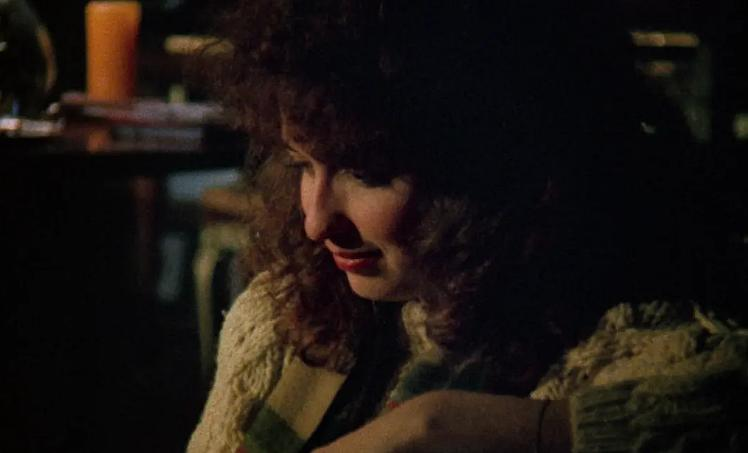
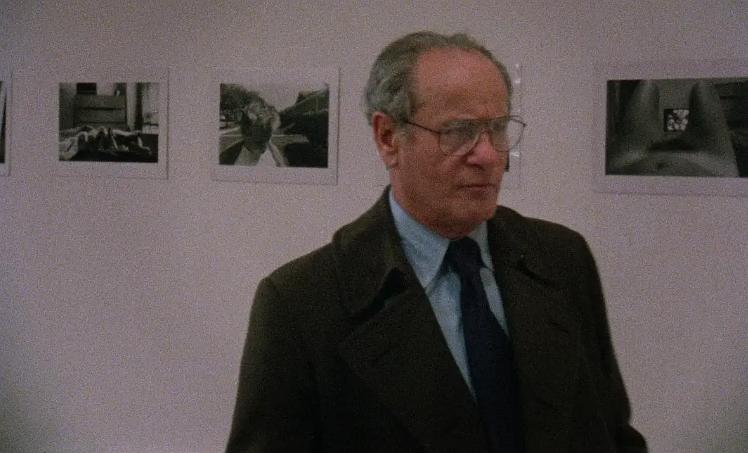

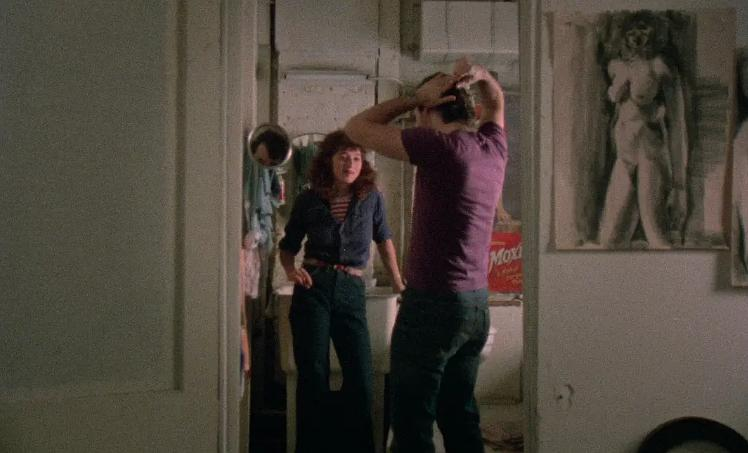
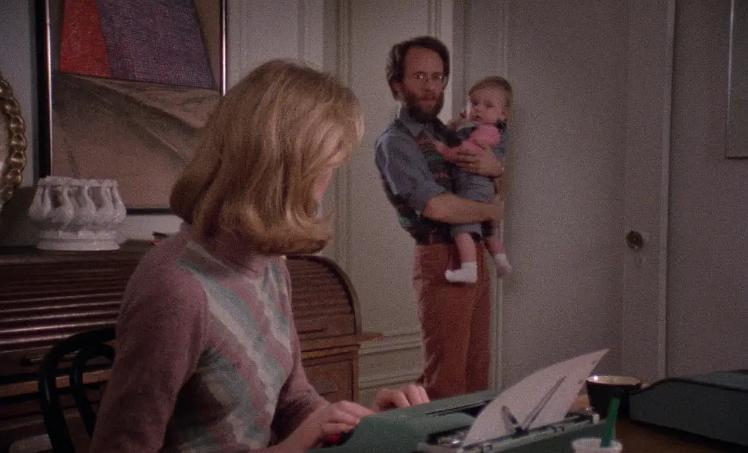
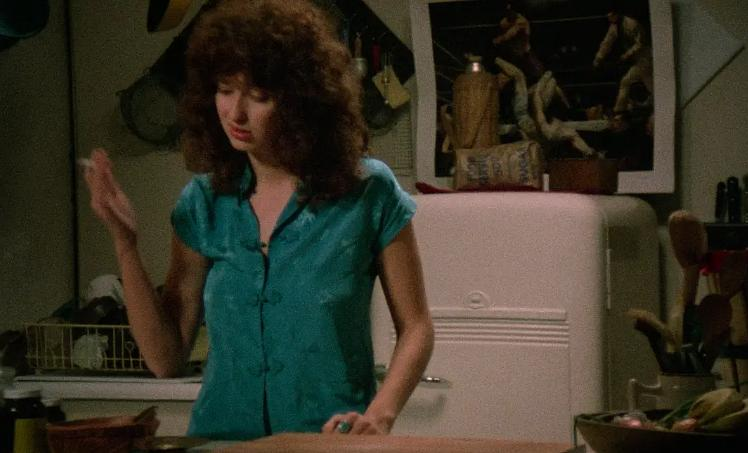

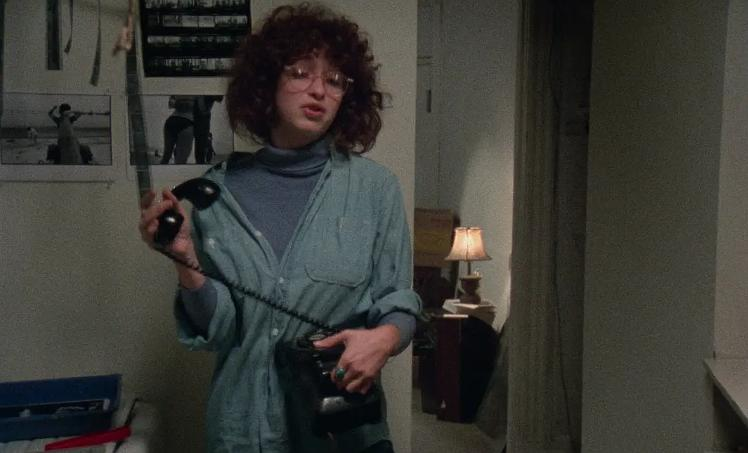
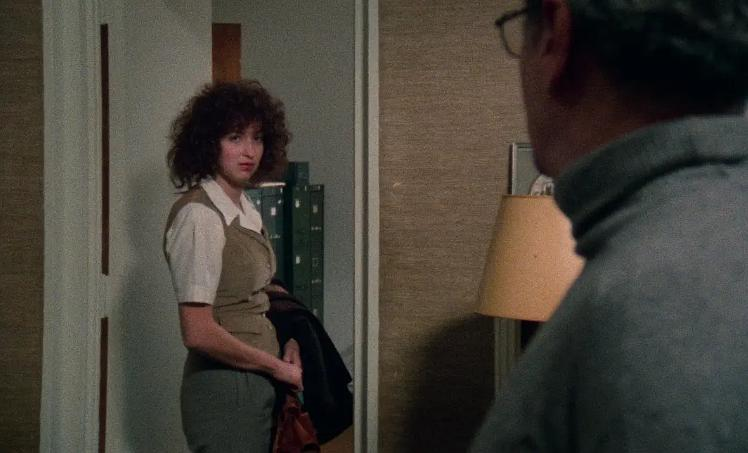

这是一部女性电影。在这部电影里,两个主角是独特而鲜活的存在。我们没有看到像大多数电影里一样把女性物化为性和爱的象征。两个主角在向我们展示着她们的生活和热爱。我们看着她们讨论诗篇,讨论创作,讨论爱情,讨论摄影。我记得影片有一个镜头是拍摄susan在粉刷一面墙。这个墙上有一个洞。这面墙就是导演想像我们展示的女性形象。她们伟大而且包容,她们可以是任何颜色,但我们不用去强求她们的完美,我们可以看到那些不完美的部分,但这就是她们。
我喜欢在Susan参加聚会时,一个男子问她要不要一起跳舞。susan直接回答了No。这完全违背了我的设想。我们看到太多的电影女性被邀请跳舞,紧接着就是两个人一起在舞池跳舞的画面。但susan作为这样一样顶着爆炸头,戴着眼镜且牙齿参差不齐的女性,自信的说出no的一刻让我看到了新时代女性的样子。之后我们看到susan去到一个男性的家里。那个男的家里有女性的裸体的挂画以及裸体的女性雕塑。这个男性的房间就像是一种从男性的视角审视女性的代表。Susan无理由的离开了那个房间。
Susan和Anne在欣赏susan拍摄的照片的场景也很有趣。我看到了完全的权利的反转,两个女性坐在沙发上抽烟,男性给她们端茶送水。两个人审视着投屏里男性的裸体。这是一次直接的表达。
在Anne结婚以后,Susan喜欢上了一个接近六十岁的男人。当susan和anne坐在床边对谈时候,我们可以看到两个人已经完全在不同的状态里了。Anne也进入了一个传统的男性的思维世界,而Susan依然保持了自我。我喜欢这个场景的布景和灯光。Susan左边是过爆的白色和光明,Anne则是处在右边则是窗帘遮挡住的阴影之中。紧接着Anne让Susan猜发生了什么,我的第一直觉就是Anne怀孕了。果然anne怀孕了,而Susan依然是畅想着一些美好的未来。这也让我自省,我是不是也陷入了世俗的观念之中。
Susan不愿将自己的房子退租也可见她一直在坚守自我,不让自己因为和Eric住在一起就完全丧失自我。她说:“It’s my own place.”
Claudia Weill, 1978n
Kubrick: “I think one of the most interesting Hollywood films, well not Hollywood – American films – that I’ve seen in a long time is Claudia Weill’s Girlfriends. That film, I thought, was one of the very rare American films that I would compare with the serious, intelligent, sensitive writing and filmmaking that you find in the best directors in Europe. It wasn’t a success, I don’t know why; it should have been. Certainly I thought it was a wonderful film. It seemed to make no compromise to the inner truth of the story, you know, the theme and everything else.n
“The great problem is that the films cost so much now; in America it’s almost impossible to make a good film – which means you have to spend a certain amount of time on it, and have good technicians and good actors – that aren’t very, very expensive. This film that Claudia Weill did, I think she did on an amateur basis; she shot it for about a year, two or three days a week. Of course she had a great advantage, because she had all the time she needed to think about it, to see what she had done. I thought she made the film extremely well.”n
— interviewed by Vicente Molina Foix in 1980
Director in person, 本来打算接着拍Documentary 但是拿到funding后改主意;结尾we are actually taking tequila shot, and the film ends there cause I don't have a decent shot of Anne looking down; I began in when i was around twenty six, and we shot that last terrible scene when I was roughly thirty; I just owned too many people too much money; I just... just tell my story
Girlfriends被华纳兄弟买下后拍第二部电影It's My Turn,体验到studio当时对女导演的歧视。"There is not a lot, I just leave."
我能期待什么呢?我能期待如果我认真去做好我想做的事,那么我是有希望把它做好的
回到电影本身,情节不停曲折,于是开始找到一些共性。每个人都是自私的,并且每个人的自私都是legitimate, justified,能怎么办呢。
Stanley Kubrick最喜欢的那个年代的电影,真正可以和欧洲新浪潮放在一起(according to Kubrick)。
讲道理近段时间最佳both the film and the director
-------------------------------------------------------------------------------------------------------------------------------------
When Vicente Molina Foix interviewed the director in 1980, asking for his thoughts on the filmmaking of men "like Coppola, Schrader, Spielberg, Scorsese, or DePalma," Kubrick ignored the tendency to talk about the usual male talent of that generation. He responded:
I think one of the most interesting Hollywood films, well not Hollywood — American films — that I've seen in a long time is Claudia Weill's Girlfriends. That film, I thought, was one of the very rare American's films that I would compare with the serious, intelligent, sensitive writing and filmmaking that you find in the best directors in Europe. It wasn't a success, I don't know why; it should have been. Certainly I thought it as a wonderful film. It seemed to make no compromise to the inner truth of the story, you know, the theme and everything else. [Taschen]
source